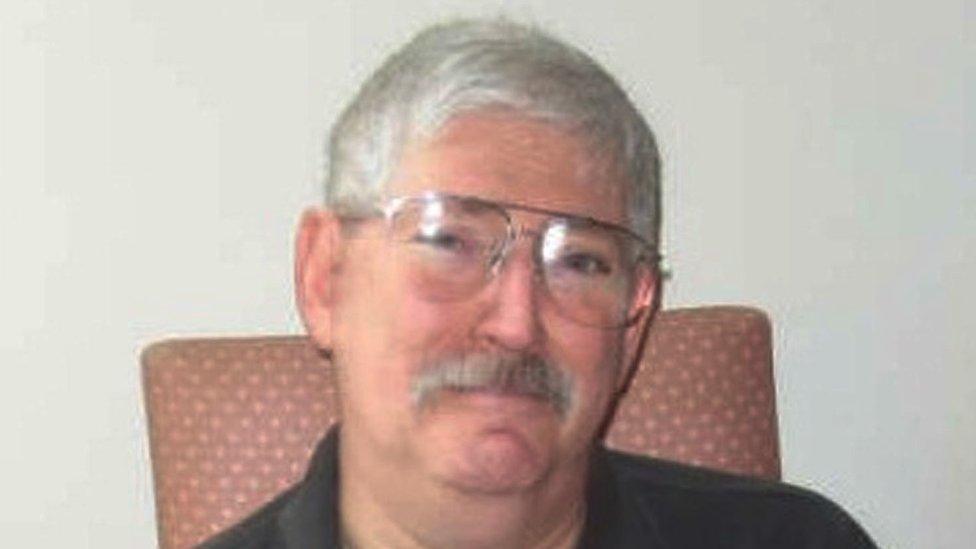Robert Levinson: Iran denies US former agent died there
- Published

US officials suspected that Robert Levinson was kidnapped by Iranian intelligence
Iran has denied a claim by the family of former FBI agent Robert Levinson that he has died in custody there, saying he left the country years ago.
"Credible evidence" suggested Mr Levinson left Iran for an "unspecified destination" at some point in the past, a foreign ministry spokesman said.
Iran has always said it has no information about what happened to him.
Mr Levinson's wife says he disappeared on the Iranian island of Kish in 2007, working as a private investigator.
In a statement on Wednesday, the Levinson family said it had recently received information from US officials that had led them to draw their conclusion.
"It is impossible to describe our pain," they said.
"If not for the cruel, heartless actions of the Iranian regime, Robert Levinson would be alive and home with us today."
Iran reiterated its previous comments about the case, saying it had been trying to find out about Mr Levinson's condition "but could not find any signs of him being aliveā.
US officials suspect Mr Levinson was kidnapped by Iranian intelligence forces to be used as a bargaining chip in dealings with Washington.
In an email to staff, FBI Director Christopher Wray said the bureau would not give up on "finding out what happened" to Mr Levinson.
"We're going to keep working doggedly to determine the circumstances surrounding Bob's abduction and his time in captivity," he wrote.
What happened to Robert Levinson?
There are conflicting claims, but little hard evidence as to the circumstances surrounding Mr Levinson's disappearance.
His family say Mr Levinson, who retired from the FBI in 1998, was on an unauthorised CIA mission when he went missing on Kish.
Proof-of-life photos and a video were received by Mr Levinson's family in 2010 and 2011, which they later released to media.
The images showed Mr Levinson, who was 58 when he went missing, with a long grey beard and wearing an orange prison jumpsuit, similar to those worn by US detainees in Guantanamo Bay.
A sign around his neck read: "why you cannot help me".
Experts determined the video had been sent through Pakistan, while the photos were sent from an internet address in Afghanistan.
Pashtun wedding music could be heard playing faintly in the background of the video, suggesting Mr Levinson could be held in either of those two countries.
Another theory of US officials was that the Iranian government could have routed the images externally in an effort to blame Mr Levinson's disappearance on someone else.
- Published13 December 2013
- Published9 December 2011